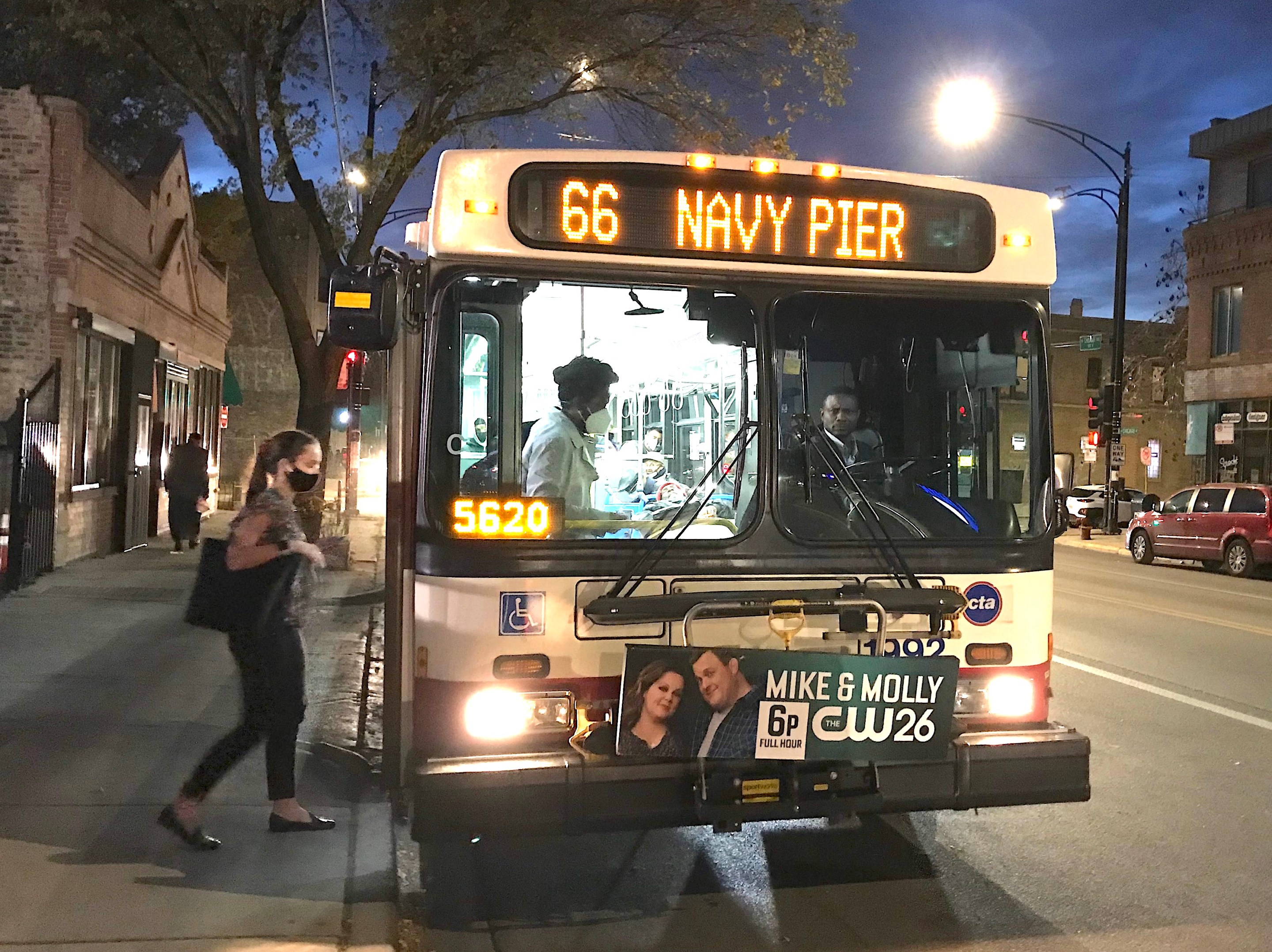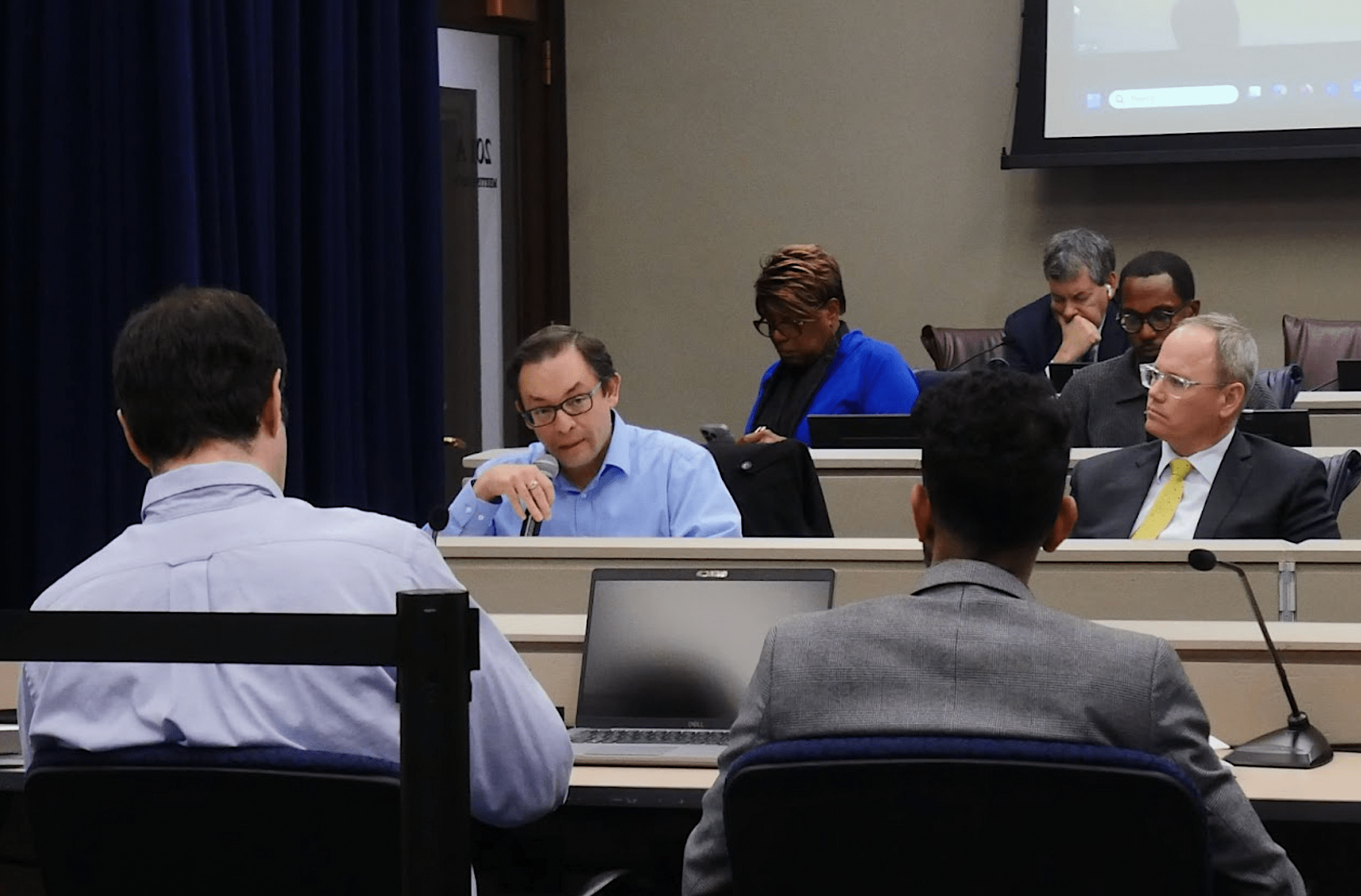The Chicago City Council is currently debating Mayor Lori Lightfoot’s 2021 budget proposal and the transportation policies she would set with it. Chicago's many existing transportation and climate change plans highlighted the need to make walking, biking, and transit use safer and increase mode share.
Included in Lightfoot's proposed budget are two transportation-related tax changes, one that would make driving a little more expensive, but another that would reduce funding for transit. The mayor wants to increase the city's vehicle fuel tax tax from $0.05 to $0.08, which is projected to raise an additional $10 million for the city. But at the same time she's proposing to divert $16 million a year in ride-hail tax revenue from a current CTA earmark to the city's general budget, a move that's being strongly protested by a coalition of local nonprofits.
Generally, an increase in the price of something decreases its consumption, so it's possible that the tiny hike in the gas fee, amounting to a roughly $0.45 tax increase for filling up an average-sized car, could be a minor psychological deterrent to driving. However, UIC urban planning professor Kate Lowe, who specializes in transportation equity, thinks that's unlikely. “Relative to all costs associated with automobile use, a three-cent gas tax [increase] is unlikely to change travel behavior, especially given a built and social environment that in many ways encourages driving”.
It's also worth noting that gas prices are often so volatile that other cost variables will make the price of a fill-up move up and down more than three cents on a weekly or even daily basis.
To encourage less driving, there should also be a carrot in the form of affordable, frequent, fast, and reliable transit service. That will be slightly harder for the CTA to accomplish with $16 million less funding a year. That additional transfer of city funds to the CTA, the first of its kind in the nation, started in 2018 under then-mayor Rahm Emanuel when that year’s budget introduced a higher 15-recent fee on ride-hail trips. In 2019, Lightfoot got additional fee hikes on Uber and Lyft trips -- with measures to reduce ride-hail costs on the South and West side -- passed, including another $2 million a year in revenue set aside for transit.
The state law that created the Regional Transportation Authority, which oversees the budgets of the CTA, Metra, and Pace, also obligates Chicago to give the CTA $3 million annually, and every year the City Council passes an ordinance reauthorizing this transfer.
Emanuel's ordinance fixed the transfer amount at $16 million, regardless of whether the amount of ride hail trip fees the city collected exceeded that amount, which it has done since then. The $16 million goes to the CTA’s capital budget, which covers infrastructure and rolling stock, and has been used for things like upgrades to rails, railroad ties, and power systems, and the installation of more security cameras. However, that money doesn't go to the agency's operating budget, which dictates the number of bus and train runs, which is what largely affects people’s daily riding experiences.
“The CTA funding was a measure to mitigate potential equity problems with the ride-hail tax which this transfer would undermine," Lowe argued.
A coalition of transportation, environmental, and social justice advocacy groups agree, and they've launched a petition to try to stop Lightfoot from diverting the $16 million from the CTA. Backers include the Active Transportation Alliance, the Center for Neighborhood Technology, the Chaddick Institute for Metropolitan Development, Chicago Jobs with Justice, Elevated Chicago, the Environmental Law & Policy Center, Equiticity, the Metropolitan Planning Council, the Respiratory Health Association, the Shared-Use Mobility Center, and the Union of Concerned Scientists.
"As hard as we’re all fighting for more federal relief for Chicago transit agencies, there’s no timeline or certainty that more money is coming," ATA stated in a blog post. "Preserving the already dwindling state and local funding sources for transit is critical. The people riding transit and keeping it running are disproportionately Black and Brown. They’re more likely to live in the communities that are being hit hardest by COVID and already lack affordable, reliable transportation options. These vulnerable residents need more support right now — not less."
Furthermore, The Daily Line reported yesterday:
The combined 2021 budgets for [the CTA, Metra, and Pace] "assume further financial relief" from Washington, "without which a reckoning will come in early 2021," Regional Transportation Authority (RTA) executive director Leanne Redden told commissioners during a hearing on Thursday.
We should actually go further than what the advocates are asking for. In addition to not ending the $16 million transfer to the CTA, the city should make the transfer amount proportionate to the amount of ride-hail fee revenue received, with $16 million as the minimum. It would also do more good if it went towards transit operations rather than the agency's capital budget. If ride hail use goes up, so would the amount the city would give to the CTA, to provide better transit service to and help address the congestion caused by increased Uber and Lyft traffic.
It's also worth noting that Chicago currently spends a massive amount of money on policing, $1.76 billion, or 37 percent of the city's $4.4 billion Corporate Fund. 85 percent of the more than 37,000 people who took Lightfoot's 2021 budget survey said money should be reallocated from policing to help pay for infrastructure, healthcare, and other social services to help prevent crime. Funding effective transit, which helps connect people with education and jobs, is an excellent strategy to promote public safety, so it makes total sense for funding to be moved from the police department to the CTA.
The budget is adopted in a series of ordinances, and should be wrapped up next Tuesday, November 24, 2020. The cancellation of the $16 million ride-hail funds transfer to CTA is in ordinance O2020-5754.
Sign the petition to let Mayor Lightfoot know you oppose the transfer here.





